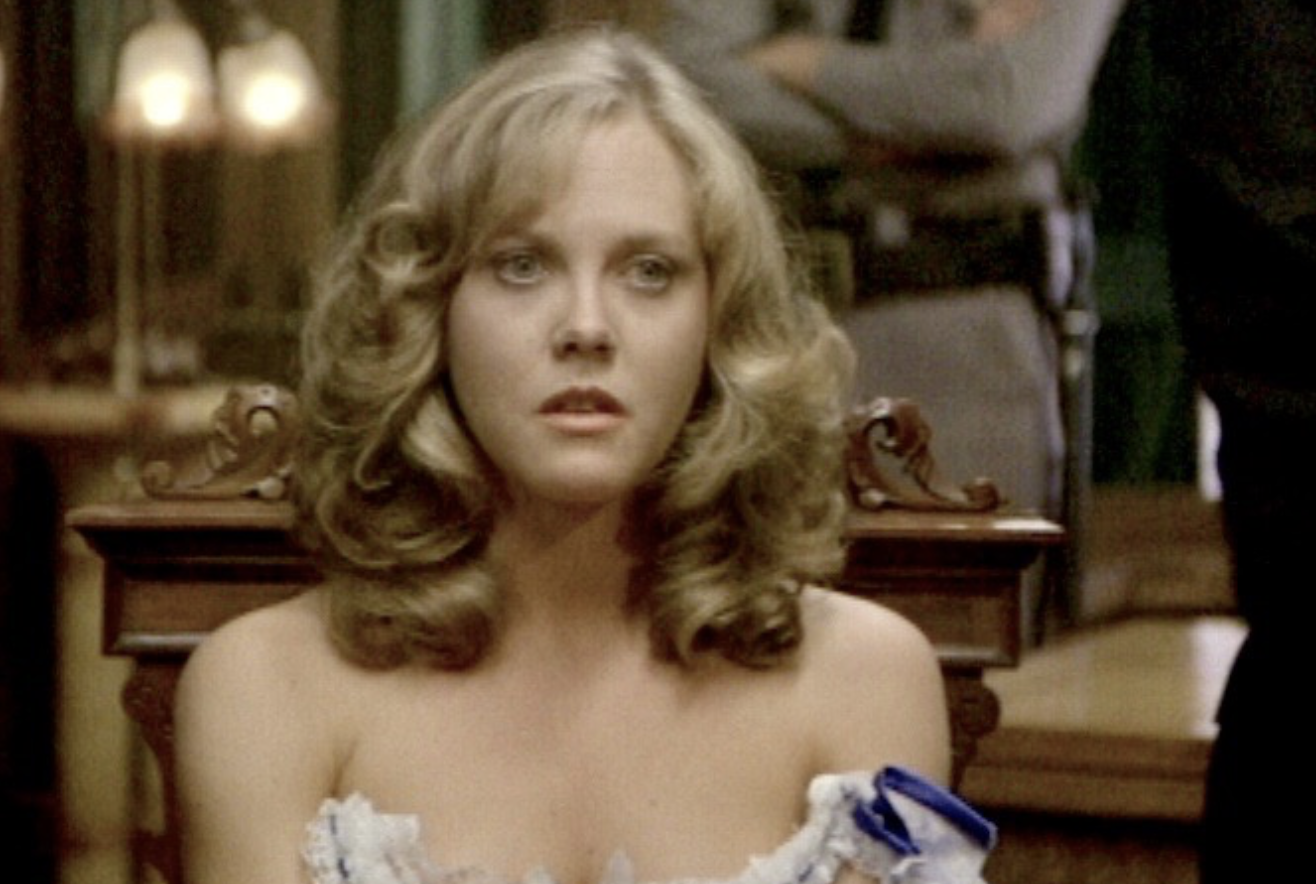Priscilla Barnes has the kind of Hollywood story people like to romanticize—pageants, bit parts, glitter, disappointment, reinvention—but beneath all that shine is a woman who earned every inch of her career the hard way. Born in Fort Dix, New Jersey, sometime in the early ’50s, she grew up as a military kid, bouncing from base to base until her family finally landed in Lancaster, California. She graduated high school at seventeen and dove straight into adulthood—waitressing, dancing, hustling for a break. There was no safety net. No industry family. Just ambition.
And then Bob Hope walked into her life.
Bob Hope, Wonder Woman, and the First Door Opening
Hope saw her in a fashion show—one of those gigs aspiring actresses take just to stay close to the action—and invited her to perform with his troupe in 1973. That moment cracked the world open. She moved to Los Angeles. Tried on Hollywood like a borrowed coat—too big in the shoulders, too loose at first, but hers to grow into.
Her early work reads like a who’s who of ’70s television guest-star credits:
• Wonder Woman (as an Amazon opposite Lynda Carter)
• Columbo (one line, but one line from Peter Falk is worth a small fortune in experience)
• Starsky & Hutch
• Kojak
• The Rockford Files
• The Love Boat
Bit parts, yes—but she collected them with a kind of stubborn determination, the way people collect proof that they belong.
The Penthouse Problem: A Scandal She Fought on Principle
At nineteen, while working as a hostess, she posed nude for Penthouse under the pseudonym “Joann Witty.” A choice made for money, anonymity, maybe a bit of rebellion. The kind of decision young actresses make when they don’t yet know how unforgiving Hollywood can be.
Years later, when she was famous, Penthouse tried to reprint the photos under her real name. Barnes fought back. She took them to court. She won. That victory wasn’t just legal—it was personal. It was ownership of her past, protection of her boundaries, and a message to every predatory publisher lurking in the weeds:
Not this time. Not this woman.
Acting Class, Sal Dano, and Learning Craft the Right Way
By 1976 she was studying with Sal Dano, the same coach who honed Tom Selleck and Robert Hays. This was the turning point: the decision to be an actress, not just a pretty face in someone else’s frame. Dano toughened her up, sharpened her. She stopped chasing the idea of success and started working toward the reality.
In 1978 she starred in The American Girls. In 1979 she was cast in A Vacation in Hell. And then, one year later, came the role that defined her—and nearly derailed her.
Three’s Company: Fame, Friction, and the Price of Being the Replacement
In 1981, Priscilla Barnes became Terri Alden on Three’s Company, stepping into the vacancy left by Suzanne Somers. She wasn’t just joining a hit sitcom—she was stepping into a culture war of egos, resentment, and unresolved conflict. The role gave her instant national recognition, but behind the scenes it was chaos.
She later called those years “the three worst years of my life.”
That’s not bitterness. That’s truth spoken without varnish.
She asked to be released from her contract. She wasn’t. She kept working anyway. She delivered 70 episodes of smart, grounded comedy. She became the steady center between John Ritter’s charm and Joyce DeWitt’s straight-woman precision. She turned Terri Alden into more than a replacement—she made her a character people still love.
And she kept her friendships with DeWitt and Richard Kline long after the studio lights burned out.
The Second Act: Bond Girl, Indie Darling, Horror Icon
Barnes didn’t fade after Three’s Company. She built a career that was more interesting than being a sitcom footnote:
• Licence to Kill (1989) – as Della Churchill Leiter
• The Crossing Guard (1995) – with Jack Nicholson
• Mallrats (1995) – cult classic territory
• The Devil’s Rejects (2005) – Rob Zombie horror grit
• Stepfather III, Thr3e, The Visitation – horror staples
Television kept calling too:
• Murder, She Wrote
• Highway to Heaven
• Hotel
• Perry Mason
• Hatfields and McCoys: Bad Blood
The woman never stopped working. She never let Hollywood define her by one role. She carved her way through genres—action, comedy, horror, drama—on her own terms.
Jane the Virgin: Reinvention in a New Era
In 2014, Priscilla Barnes joined Jane the Virgin as Magda Andel—a villain wrapped in elegance and menace, a character who could have been caricature but became unforgettable in her hands. She played the role across 41 episodes until the series ended in 2019.
She stole scenes. She made the writers braver. She became a late-career revelation.
The Person Behind the Filmography
Barnes married actor Ted Monte in 2003. They’ve kept their private life exactly that—private. Maybe because she knows how hard she earned her privacy. Maybe because after the storms of the ’70s and ’80s, quiet stability tastes sweeter.
She’s acted onstage—Hillary Agonistes, To Quiet the Quiet—with a precision that feels lived-in. She knows what she’s doing. You can see it in every gesture.
What She Represents
Priscilla Barnes isn’t a cautionary tale.
She’s a survivor.
A warrior.
A woman who took the hits, kept the receipts, and built a decades-long career anyway.
She beat Penthouse in court.
She survived the pressure cooker of a sitcom at war with itself.
She reinvented herself across every genre Hollywood threw her into.
She came back with Jane the Virgin and reminded everyone why she mattered in the first place.
Her story isn’t about fame.
It’s about resilience.
About grit.
About choosing survival over spectacle.
Priscilla Barnes didn’t just star in television history—
she lived through it, walked away from it,
and wrote the rest of her career on her own damn terms.


